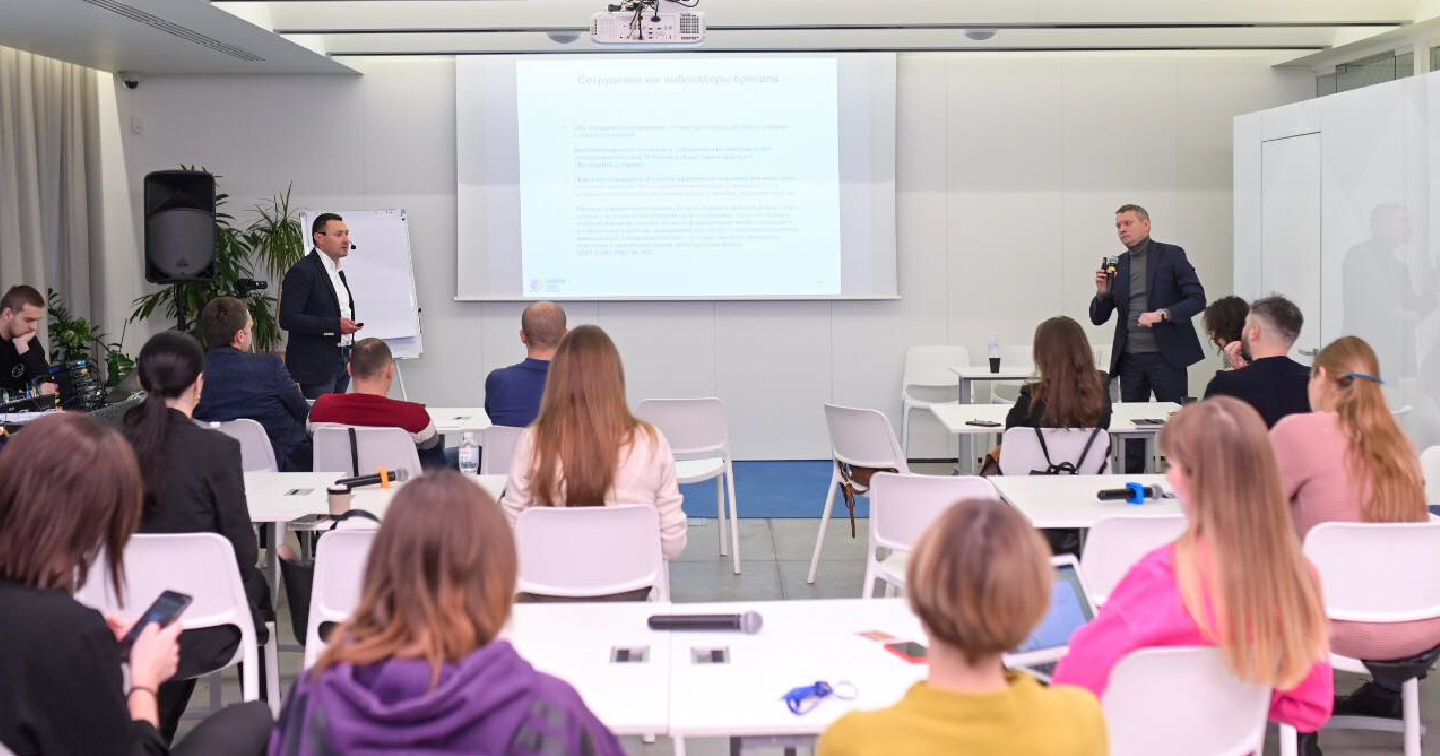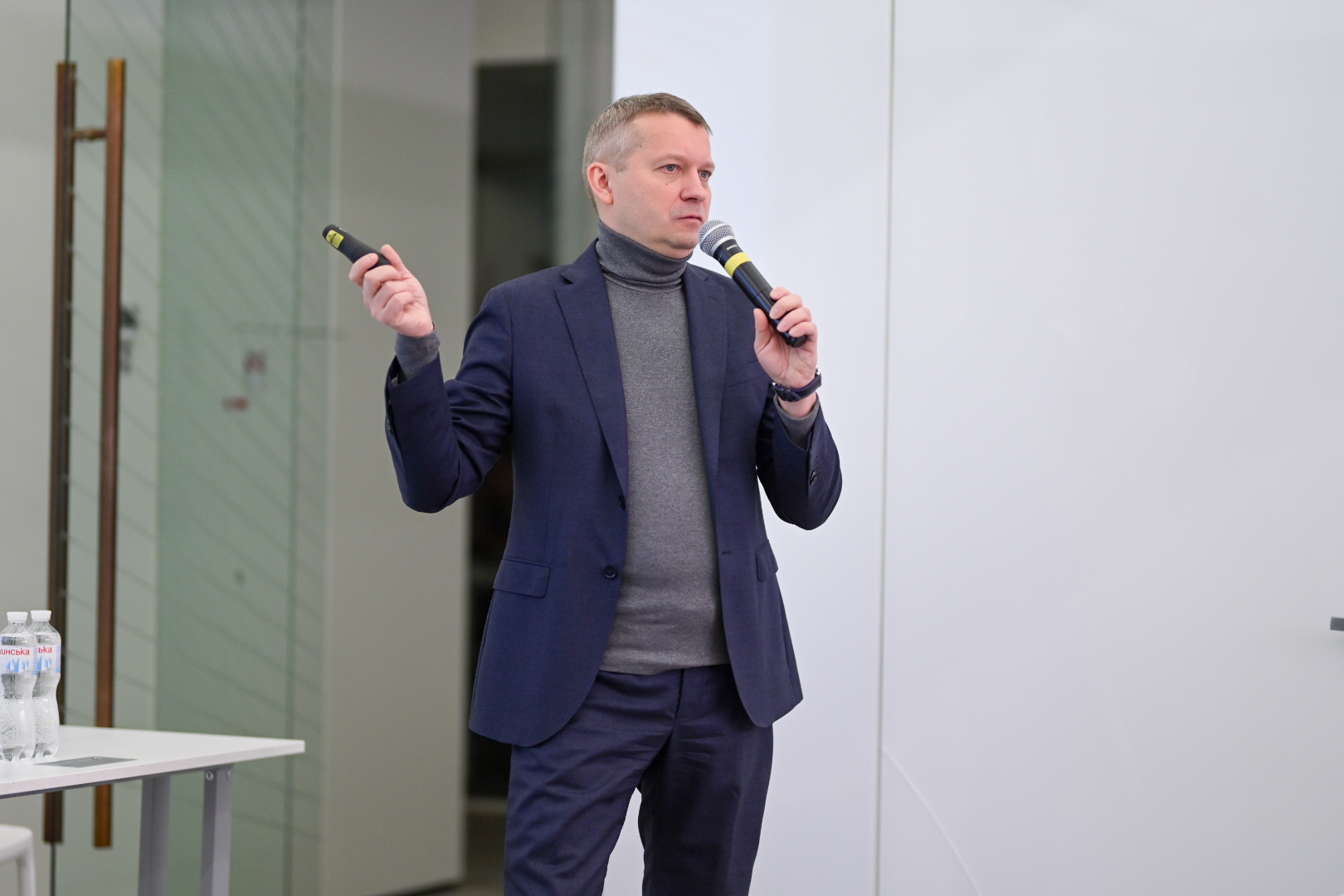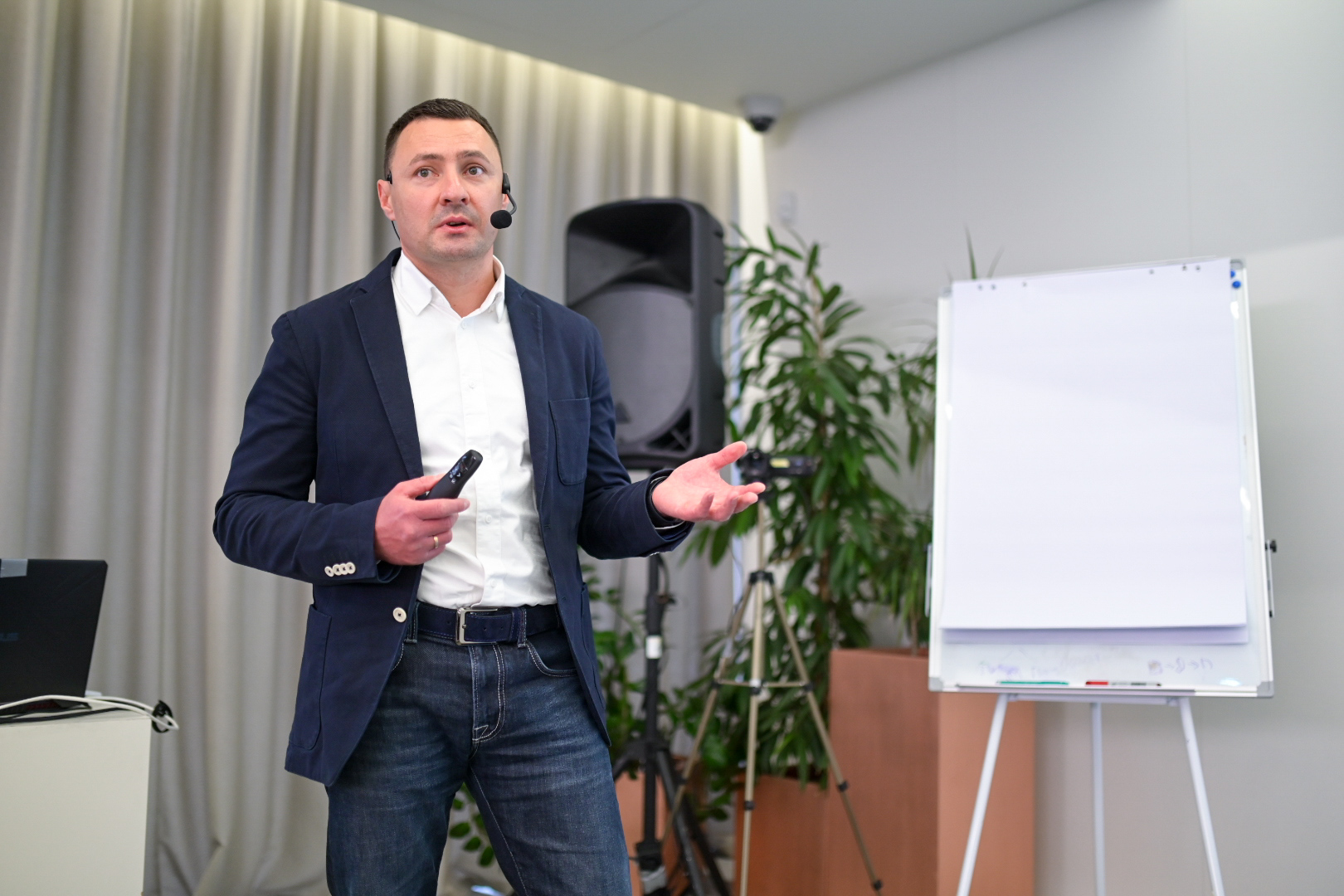REPUTATION – THE KEY ASSET. OLEG KERSHIS AND DMYTRO ZVEREV TALKED ABOUT NEW REALITIES FOR BUSINESS

In today’s reputation economy, it is not enough to produce a good product, you need to get into a broader context. The company must meet environmental, social and corporate standards of integrity, i.e. have a good reputation, said during a lecture for the educational project KIEF Academy Dmytro Zverev, chief reputation officer, head of Marketing and Corporate Communications Department at UFuture holding company.
Reputation is both an important asset and a serious risk. In 2018, JPMorgan called reputational risk – along with the risk of capital shortages and liquidity risk – critical for companies. In 1975 the ratio of tangible and intangible assets in companies from the S&P 500 was 83% to 17%, respectively, in 2015 – 16% to 84%.

“All over the world, we see the same trend: companies are fighting for a corporate identity. The three main components of corporate identity – vision, culture and competence, reputation – must be interconnected. But working with various businesses, we see that often the corporate culture exists separately, the vision separately, and the fact that the company has a reputation, few people think at all. I would like all these components to be combined,” said Oleg Kershis, CEO of Reputation Capital.

“What is reputation? On an intuitive level, we understand. Simply put, reputation is an opportunity. Without a reputation in the modern world, opportunities may not even arise. Today, WHO YOU ARE means more than WHAT you do. Yes, 43% of buyers are ready to buy a good product, and 57% are ready to buy a product from a company with a good reputation. 37% of people are ready to invest in a good product, and 63% are ready to invest in a company with a good name,” Dmytro Zverev added.
What a good reputation gives:
- reputational risks reduction;
- trust of key stakeholders (clients, partners, investors, government institutions, etc.);
- loyalty of current and potential employees;
- market capitalization increase (systematic reputation management in the
- long run helps to improve the financial performance of the business).
Good reputation management, the speakers emphasized, is important not only for companies, but also for its top management. Moreover, the assessment of the reputation of the company’s top management by only 35% depends on the financial indicators of the company – 65% depends on non-financial criteria.
“The reputation, the brand of the company, and its identity in the consumer minds are very important. And every year these things become more and more important,” Dmytro Zverev emphasized.
Trends in reputation management:
- the fight for consumer trust;
- improvement of reputation measuring methods;
- further integration of reputation management in the decision-making process;
- focus on stakeholders and transparency increase in the company’s activities and communications.
What’s next
On February 25, 2022, the KIEF Academy, an educational project of the Kyiv International Economic Forum supported by UFuture, will launch the second stage of the Leadership for Economic Development program. What is waiting for students? Philosophy, networking and tools for unlocking the economic potential of companies, cities and countries.
The training will consist of 8 modules:
- global trends and successful cases in Ukraine;
- applied macroeconomics and economic policy;
- instruments of economic development;
- management strategies and best practices;
- financing of development projects: grants, loans +;
- creating successful teams;
- “invisible capital”: reputation, PR and communications;
- culture, philosophy, thinking.
Documents are accepted till February 7, 2022. You can apply at the link.